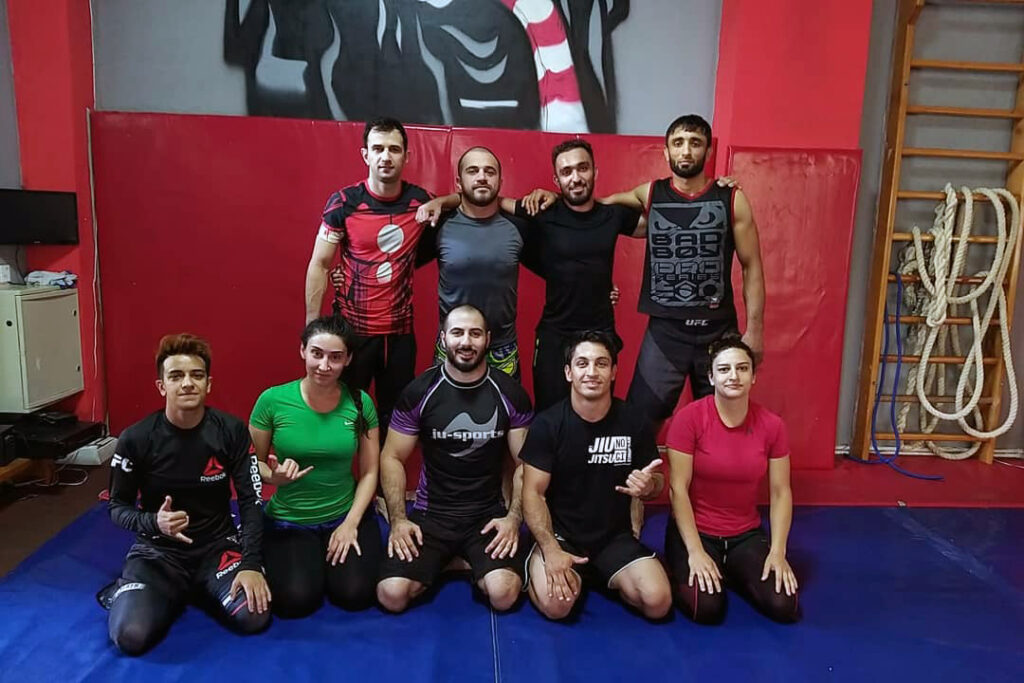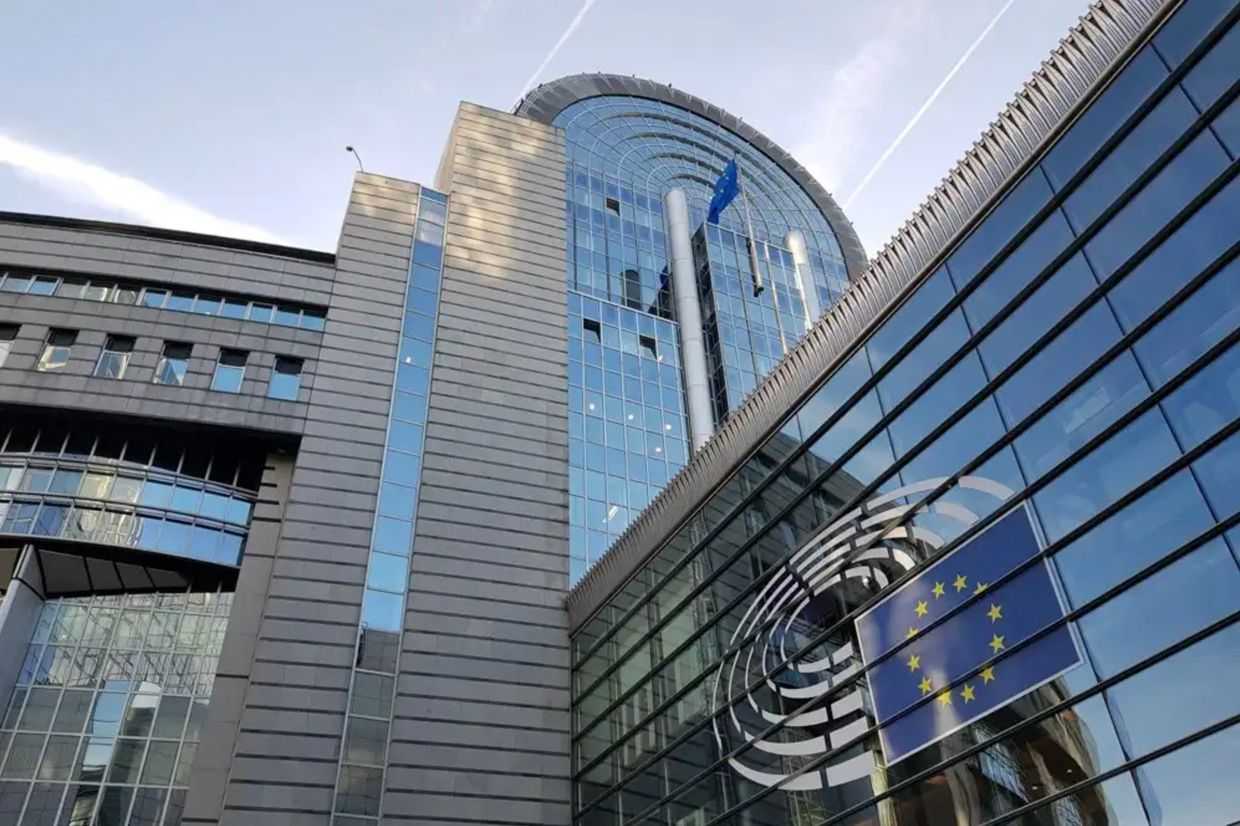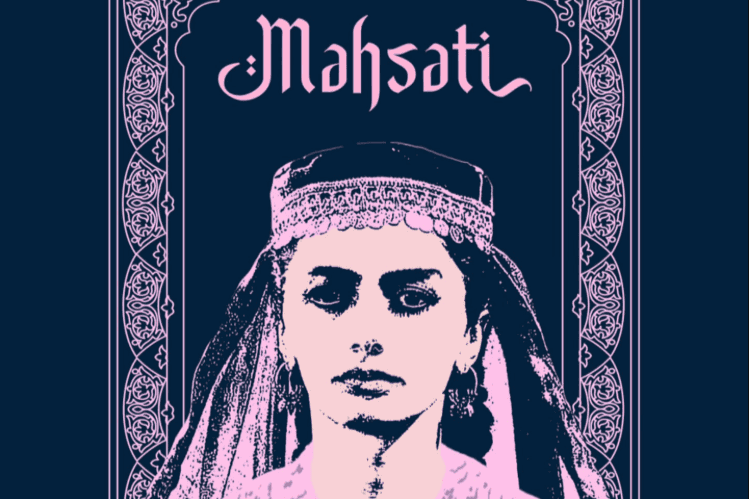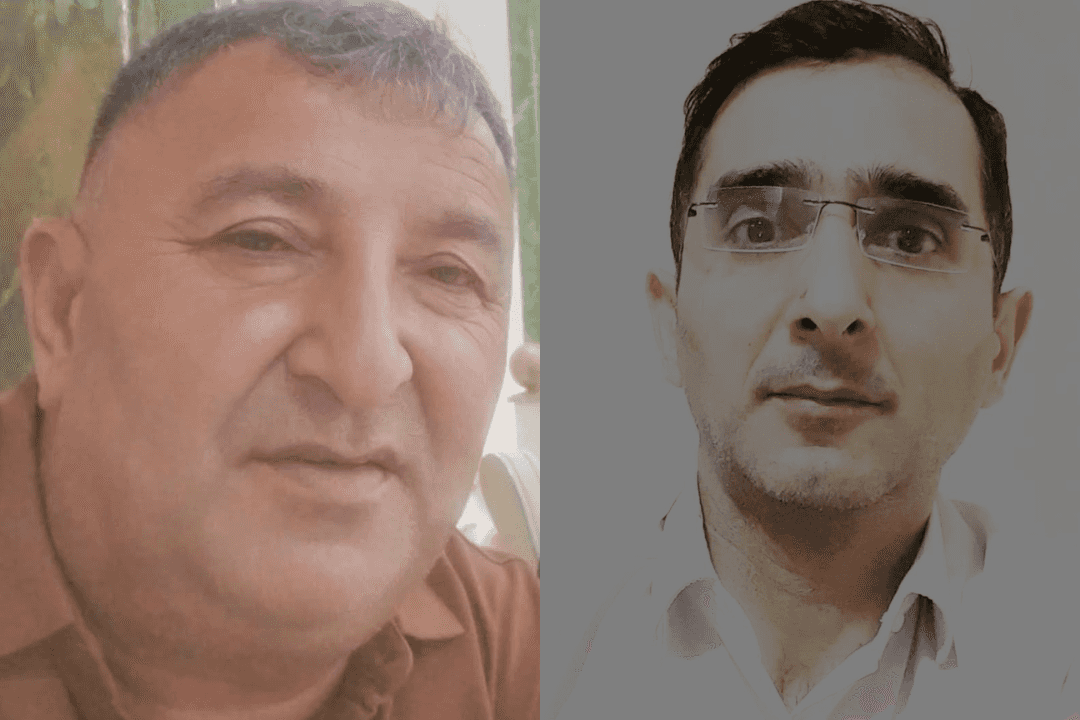
Twenty-five-year-old Devran Ibrahimsoy did not receive his family’s support when he began to discover his gender identity; after he fled to Baku, they even kidnapped him. For Devran, this is just one of the many incidents that have made transitioning in Azerbaijan unbearable.
‘I had played football since I was a child and was even selected for the national youth team. Unfortunately, the doctors forbade me from playing after a car accident in 2009.’
‘It’s difficult to describe my childhood. We had a lot of challenges and very little money. Almost 70%–80% of my life was spent in hospitals. I even remember being badly beaten by my mother as a child because I did sports. One time, my right arm was shattered into pieces from my shoulder to my fingers after a table was smashed over my shoulder.’
‘Then I started doing some Judo and Brazilian Jiu-Jitsu in 2017. I remember I was already beginning to discover my sexual identity back then.’
‘When I restarted sports I was still in Shamkir. My mother told me that if I attended training she would not let me come home. So in the summer of 2019, I chose sports. I picked up my training clothes and left home. Four hours later, my coach in Shamkir wrote to me that he could no longer train me.’
‘In Baku, 98% of the guys accepted me as I am. My new coach told me that if this made me feel happier, then he and my training partners were also happy. I cut my hair, I accepted my identity, they also accepted me.’
‘My only concern was changing in the fitting room, so our coach would open his room for me to get dressed there. Everything was great in Baku in terms of sports; my training partner would even get my hormones for me. Then I started to work and didn’t have time to train.’
‘After I started hormonal therapy, state employers rejected my job applications because of my visual appearance. Other employers would look at me, and then at my identity card, and ask why I had facial hair, why my voice was different, and then just ask me to leave promising to contact me in the future.’
‘When I go to the post office or the bank, employees don’t believe I am the person in the documents and they ask me to leave. Most people I know who went through the same transition had to leave the country. Some of them did sex work to gather enough money. Some left before starting the therapy, and they still struggle with emigrant life.’
‘At some point, my university groupmates in Baku beat me up because of my gender identity, so I had to stop my education and go back to Shamkir. When my family realised that my body was changing due to the therapy, they used violence as well; so I had to escape back to Baku.’
‘My family kidnapped me’
‘I was lucky to get a job from a friend in a club. A year ago, something horrible happened to me as I was on my way home from the club. I left work, then my family kidnapped me.’
‘Five people, my mother, father, and closest relatives pushed me into a car and threatened to kill me. Then they drove to Shamkir to our family house. I managed to message some activists before my phone ran out of charge.’
‘They sent the police to our house just in time. The police rescued me, and generally behaved very adequately with me.’
‘When the police came, they saw my identity card and that I am a completely different person now. They asked if I was changing by my own will and why. I just explained that I want to be in the body I feel comfortable in. They gave me some food, called me by my name, even wished me luck in the transformation.’
‘After being rescued, I was initially planning to take my family to court. Sometime later I agreed to compensation in order to rehabilitate from the horror I went through. I also demanded a restraining order, so my family would stay away from me.’
‘Some time passed and I reestablished contact with them. Although they still don’t accept me, I love my mother so much.’
‘Now I’m going through continuous rehabilitation, my childhood friend and the LGBTQ community is the most important support I have. The community is certainly helping, but I also understand that this is not forever. My family, just like many others in Azerbaijan, don’t accept who I am, thinking that my friends in Baku brainwashed me.’

‘Yet it was actually my friends who sheltered me when I had nowhere to go. Some of my friends though still don’t understand why I am transitioning, they say I looked better before.’
‘My father actually says he doesn’t care about my gender, and it might be because of patriarchal thinking, but my mother’s side is absolutely against it. They are concerned about their name and honour, I come from a family of military servants you know.’
‘I get very irritated by the questions’
‘People often ask me uncomfortable questions like: “Do you have sex organs? Have you been operated on? Did you cut it? Did you attach it? Did you ever date a guy? Maybe you were never satisfied by a guy? Maybe you are a Lesbian? Maybe a guy cheated on you and that is why you are doing this? How’s your sex life with women?”.’
‘I get very irritated by the questions. Now I just direct people to my YouTube channel where I answer these “frequently asked questions”.’
‘Even some doctors ask me uncomfortable questions. For instance, if I manage to satisfy my partners, if I can get an erection, if I am a hermaphrodite because I have low levels of testosterone. Every time I have to make something up in order to escape the examination.’
‘Having had enough unpleasant conversations with doctors, I don’t visit gynaecologists anymore, some of them even reject me for check-ups. I think many doctors don’t want to take responsibility because trans individuals are not protected by the law.’
‘Destined to isolation’
‘If you’re trans in Azerbaijan, you cannot get a job, doctors don’t want to help you, and there are difficulties buying hormones. I wish the next generations of trans people not to be born in Azerbaijan, it is too difficult here. If you are an LGBTQ individual it’s tough, for trans people, it’s even harder.’
‘Staying in Azerbaijan with the consequences of war and pandemic is unbearable for me and I don’t want to make myself even more miserable. The authoritarian rule, lack of social welfare, and wild homophobia make me want to leave.’
‘In general, I think that trans people are destined to isolation because society doesn’t accept us. If there are trans people who want to transition, do not do it in Azerbaijan. Azerbaijan isn’t there for us, it’s dead, it’s dim, and no one is there to mourn for us. There isn’t much more to say.’
‘I feel like I am in a vortex in Azerbaijan.’








